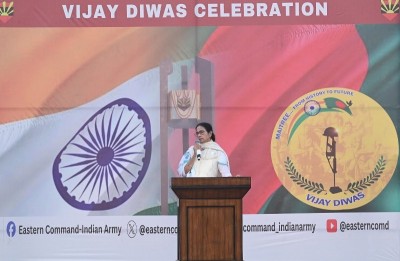
Urgent action is needed to find, test and treat the missing millions suffering viral hepatitis
Millions of people across the world and in the WHO South-East Asia Region are infected with viral hepatitis without knowing and without receiving treatment. Both worldwide and in the Region less than one in 10 infected people are estimated to know their status, while less than 10% of those who do know their status are receiving appropriate treatment.
This lack of awareness and treatment lead to progressive liver damage and can cause life-threatening conditions such as fibrosis and liver cancer, resulting in an estimated 410 000 deaths in the Region every year. It also allows viral hepatitis to spread: Region-wide, an estimated 40 million people live with chronic hepatitis B while an estimated 10 million live with chronic hepatitis C.
Urgent action is needed to find, test and treat the missing millions suffering viral hepatitis and achieve the time-bound targets of WHO South-East Asia’s Regional Action Plan. That includes ensuring at least 50% of infected people know their status and at least 75% of those diagnosed with the disease are provided treatment by 2020. Ninety percent or more of newborns should meanwhile receive the hepatitis B vaccine’s birth dose, while at least 95% of children should complete the vaccine’s three-dose schedule. Increased injection safety in health facilities is likewise critical.
To achieve these outcomes and eliminate viral hepatitis as a public health threat by 2030, as envisaged in WHO’s Global Health Sector Strategy on Viral Hepatitis, greater awareness among high-risk groups and the general public is key. Health authorities Region-wide should deploy clear messaging regarding the disease’s signs and symptoms, where they can get tested and seek treatment, and how hepatitis infection can be prevented (for example by vaccination for hepatitis B, and safe sex and safe needle usage for hepatitis B and C). They should also build health workers’ capacity at all levels to identify symptoms and test for the disease where appropriate.
To make that happen, health workers must have better access to quality point-of-care diagnostics and laboratory testing. All testing kits, for example, should be affordable and quality assured. Results should be communicated confidentially and without prejudice or stigma. Importantly, testing should be integrated with HIV, antenatal care and cancer screening and treatment services. It should also occur under a clear set of national guidelines.
Where individuals test positive for hepatitis B or C, access to effective and affordable treatment is vital. While treatments have existed for hepatitis B for some time, Directly-acting antiviral drugs can now cure hepatitis C in up to 95% of cases. Notably, the cost of these treatments has dramatically reduced, while most are now registered and licensed in each of the Region’s countries. To reduce costs further, Member States should make full use of flexibilities in global trade agreements.
WHO South-East Asia is committed to supporting Member States find, test and treat the missing millions suffering viral hepatitis and to harness the full potential of available tools. The stakes are high; the burden immense. Across the South-East Asia Region, urgent action is needed to counter viral hepatitis and save life.
Support Our Journalism
We cannot do without you.. your contribution supports unbiased journalism
IBNS is not driven by any ism- not wokeism, not racism, not skewed secularism, not hyper right-wing or left liberal ideals, nor by any hardline religious beliefs or hyper nationalism. We want to serve you good old objective news, as they are. We do not judge or preach. We let people decide for themselves. We only try to present factual and well-sourced news.







